Subscriber Exclusive Alert
If you're an L.A. Times subscriber, you can sign up to get alerts about early or entirely exclusive content.
You may occasionally receive promotional content from the Los Angeles Times.
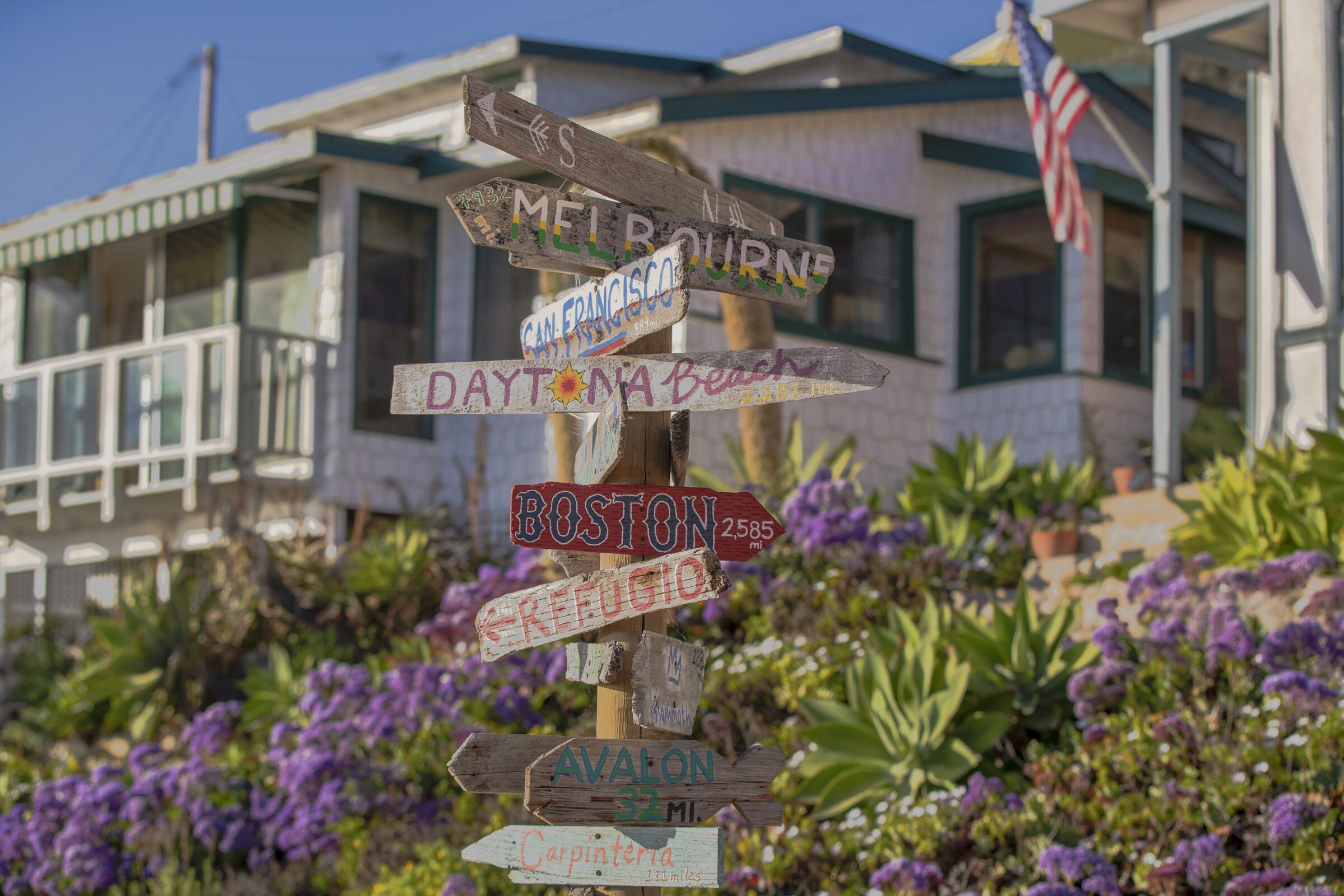
Abject failure is the typical result when I attempt to book a stay at the Crystal Cove Beach Cottages.
Still, the challenge hasn’t deterred me from trying. Over the last couple of years, I’ve been able to stay at seven different cottages thanks to a combination of perseverance, flexibility and a sprinkling of luck. And it has been magical.
The rustic 1920s- to 1940s-era bungalow rentals are tucked above a stretch of unspoiled beach between Newport Beach and Laguna Beach. The cottages — some with new or worn paint, others dressed in naked wood shingles, and a few cordoned off with white picket fences — are part of a funky village that’s something of a near 100-year time warp at Crystal Cove State Beach, a slice of untouched coastline.
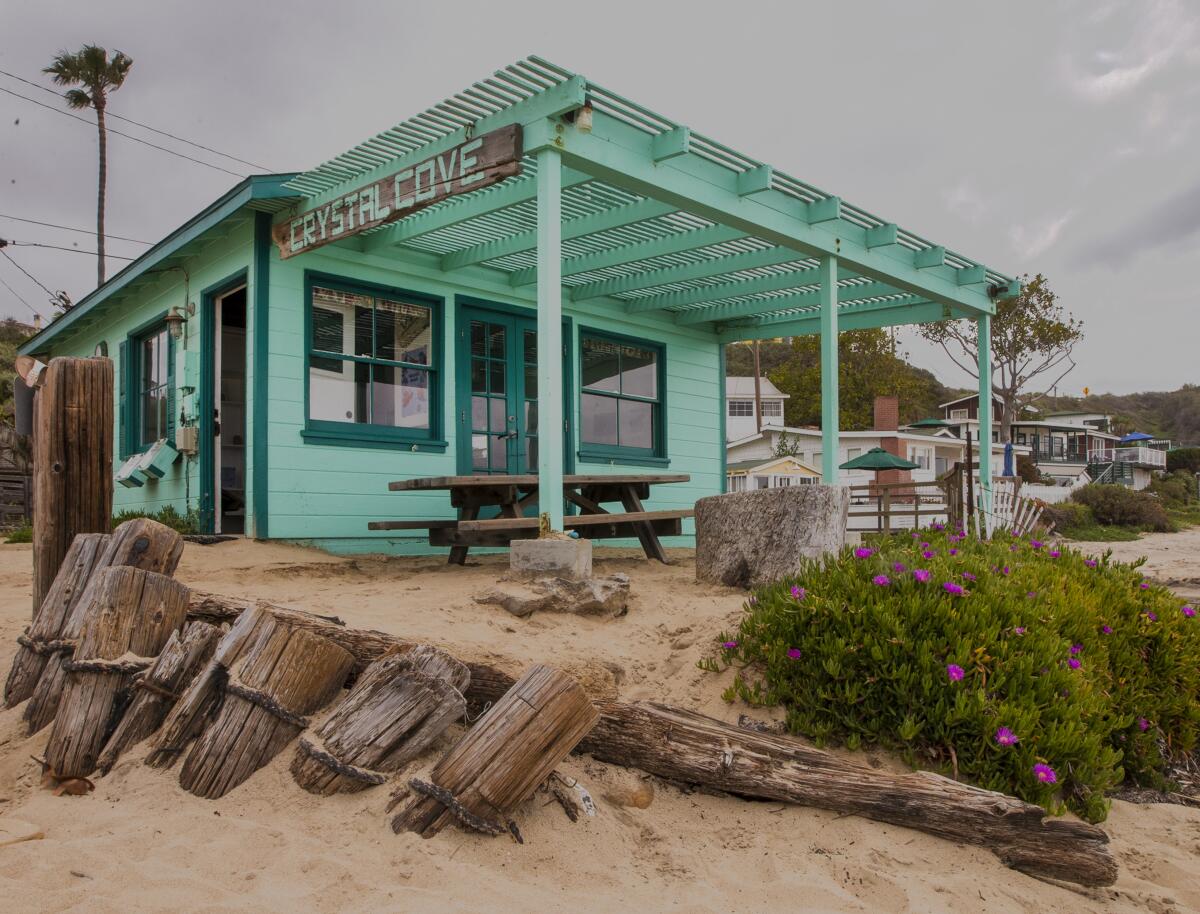
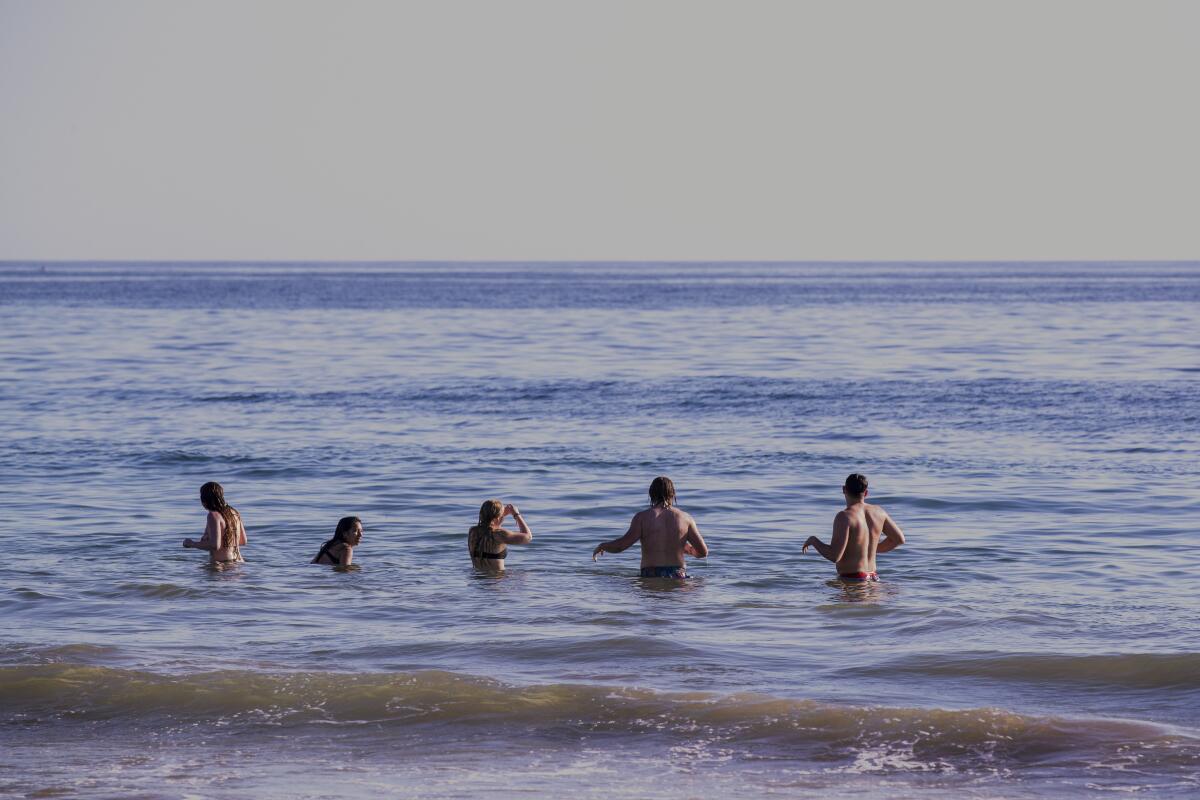
Crystal Cove State Park has been a special place for me and my family of three, long before I figured out how to snag a cottage. It’s marked some of the most important moments in my life.
Just days before I gave birth to my daughter Cora in 2015, my husband snapped a photo of my very pregnant silhouette. Every year since then, at the same time, date and spot, he has taken the same photo of me — with Cora now on the outside. It’s become something of a tradition.
The park marked a milestone for me as a new mother when it became Cora’s first outing. She was only 2 weeks old and until that time, I was terrified to take her outside of the house.
It’s where we forged magical friendships with an impromptu slumber party at the Shell Shack (Cottage #2). On a whim, I drove to the Crystal Cove Beach Cottage office and got to the reception right before 11 a.m., asking if they had a same-day cancellation. They did. Excitedly, I called my friends Ingrid and Anh, inviting them and their daughters to stay with us for that night. We piled into a large room. The girls were tickled by the Murphy beds and retro kitchen.
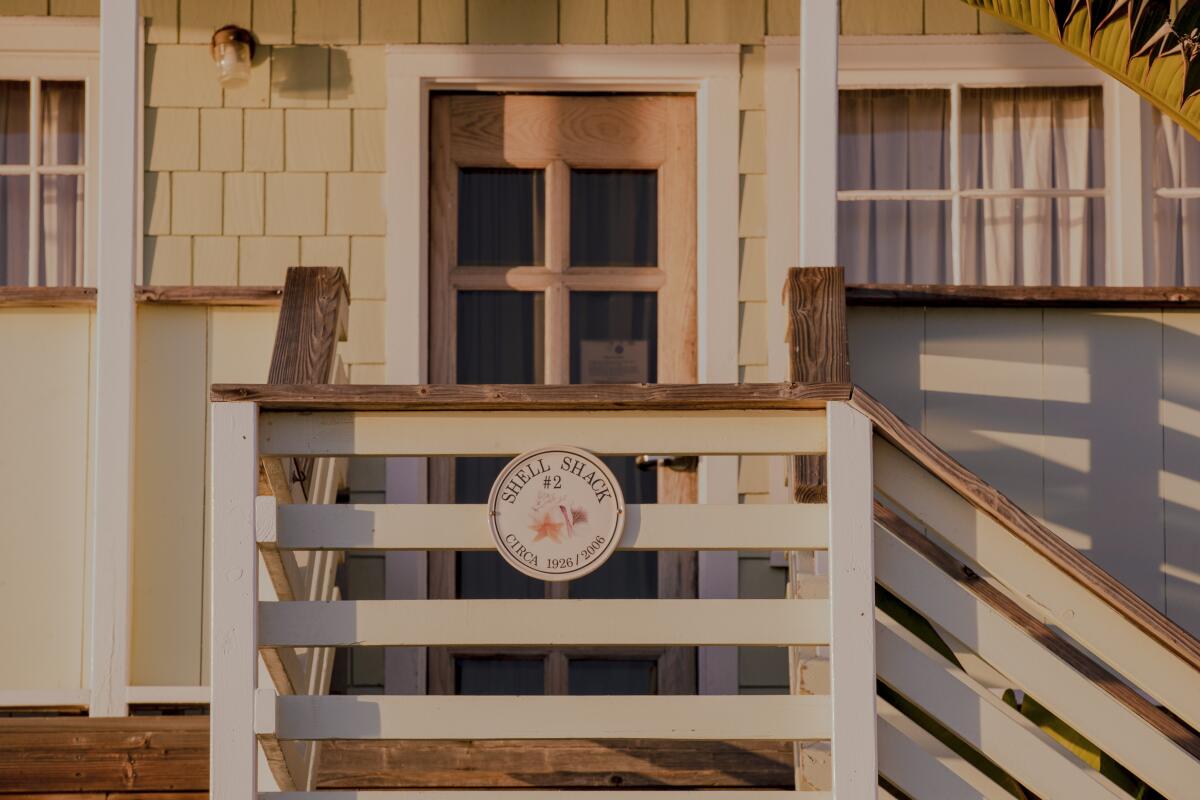
Then in March 2020, it was my family’s last hurrah before the early dark days of the pandemic set upon us. At the time, my friend Anh and I basked in the sunny living room of the South Beach Suite (Cottage #16). We gazed out the panoramic windows facing sandy South Beach. We watched our daughters dance along the shore. We wondered out loud whether our lives would change with the novel coronavirus, and for how long.
Before this, I had tried for years to score a cottage on the state website without success. At one point I gave up on it, thinking it was a lost cause. But then I heard from a friend that I might have some luck checking for cancellations from time to time — either online or in-person. It’s a crapshoot but, ever since I started trying, I’ve had luck on several occasions.
After the COVID-19 pandemic came to California, the private rooms in cottages 38, 39 and 29 were converted into full-size cottages for rent. In all, 17 cottages are available for public rental. Nightly prices range from $204 for a two- to three-person cottage up to $288 for a cottage that accommodates six to nine people — a steal, considering beachfront lodging nearby can easily cost $500 a night.
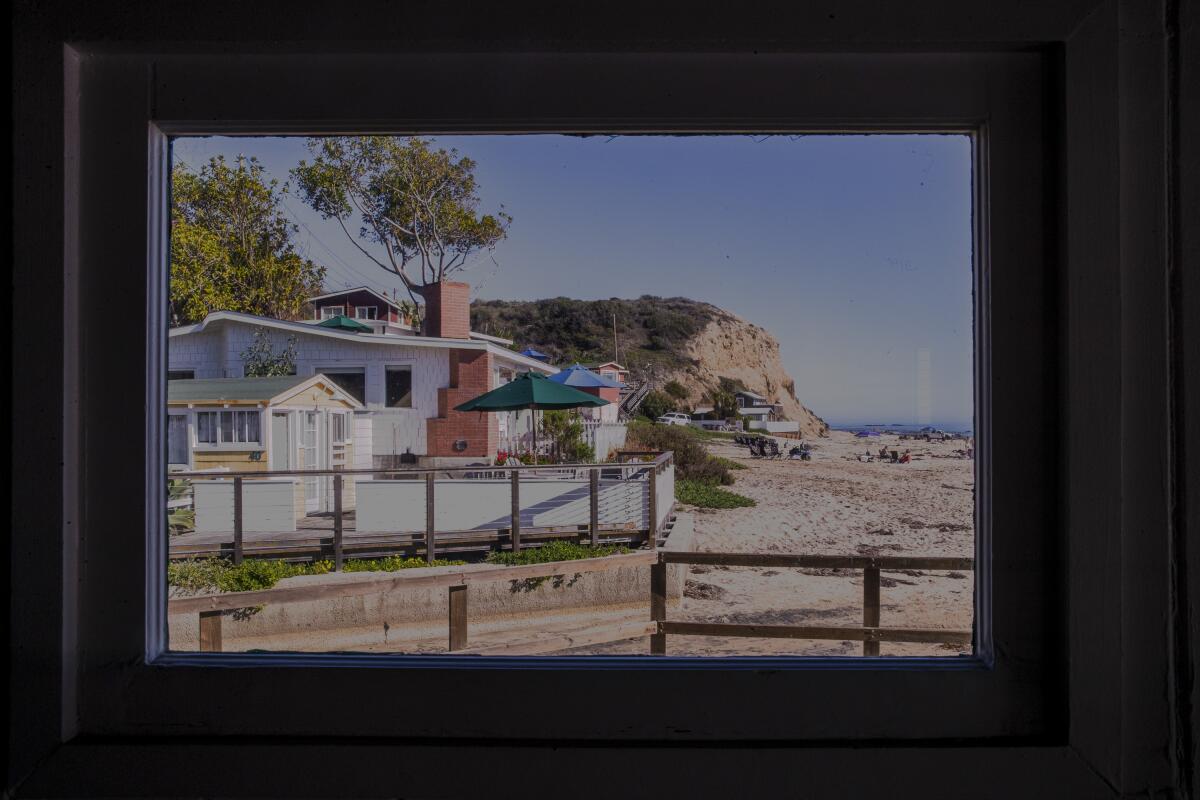
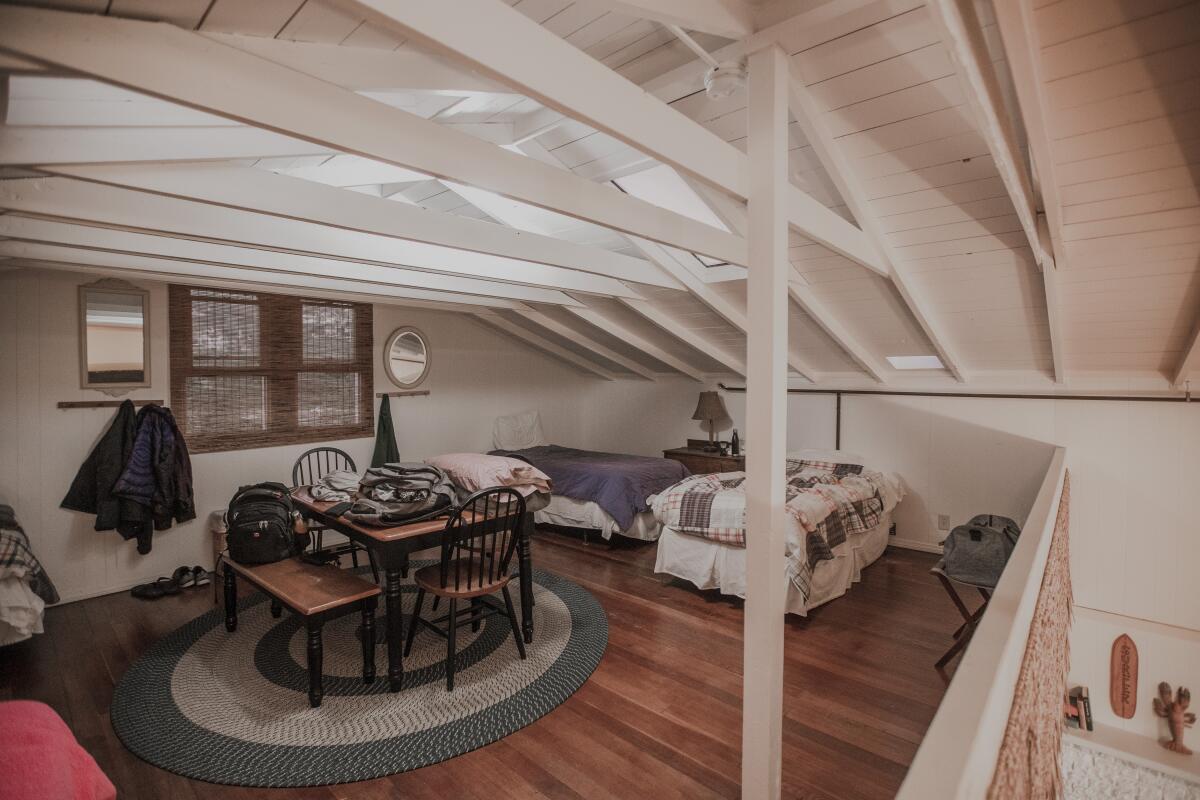
To be clear, this isn’t a fancy beach resort. Quite the opposite. The rooms are rustic, even worn. There’s no room service. If you want your bed made, do it yourself. The kitchens are minimal. Some cottages have nearly full kitchens, others just a minifridge. But the charm and history more than make up for it.

Subscribers get exclusive access to this story
We’re offering L.A. Times subscribers special access to our best journalism. Thank you for your support.
Explore more Subscriber Exclusive content.
Crystal Cove began as a small portion of the grand holdings of rancher James Irvine, who acquired a large chunk of Orange County in the late 1800s. Ranch workers were the first to camp at the cove. The 1918 movie “Treasure Island” was filmed at Crystal Cove. Filmmakers re-creating the South Seas left behind palm leaves and thatched shacks.
After the Pacific Coast Highway was completed in 1926, people started taking over the moviemaking remnants or building their own house out of whatever they could find — including lumber from shipwrecks — and a seaside colony was born.
Now the 46 cottages are listed on the National Register of Historic Places and 29 of them have been restored. The restoration of the final 17 cottages on North Beach is underway, along with a 650-foot-long boardwalk.
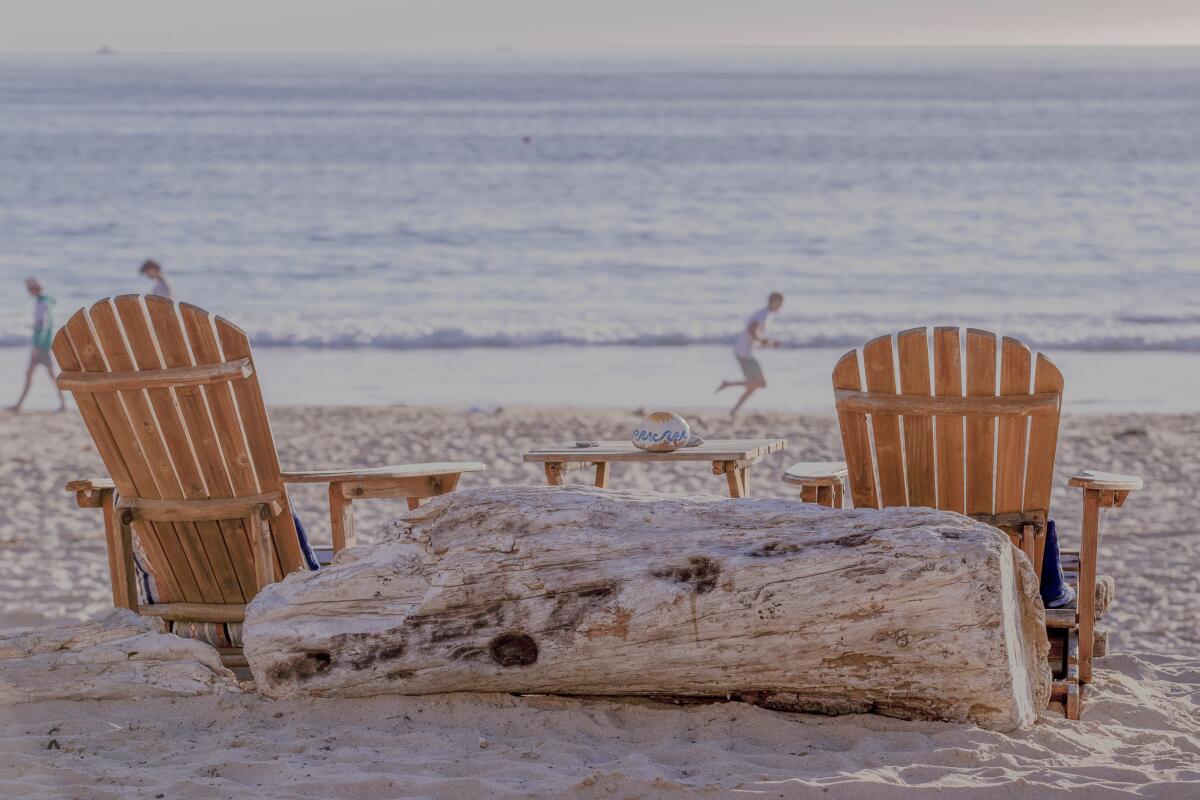
I’ll always remember our first stay in 2018. I indulged by just sitting on a beach chair on the sand and watching Cora, then a toddler, dance on the shore, chasing the seagulls, which she couldn’t quite pronounce.
“Hey sea souls. Come here sea souls,” she yelled out between bursts of laughter.
The best part was we could just walk up to our room when she petered out and I could promise we could return shortly. No having to deal with sandy little feet before getting back in the car. No having to deal with a cranky kiddo on the car ride home to Santa Ana. She could just nap in our room.
Maybe it was the somewhat quirky and historical beach decor? Or perhaps it was the fact that all I had to do was walk a few steps and I was on the sand? Or that the waves crashing on the sand lulled me to sleep that night? All I know, is that I’ve been hooked on scoring a cottage ever since.
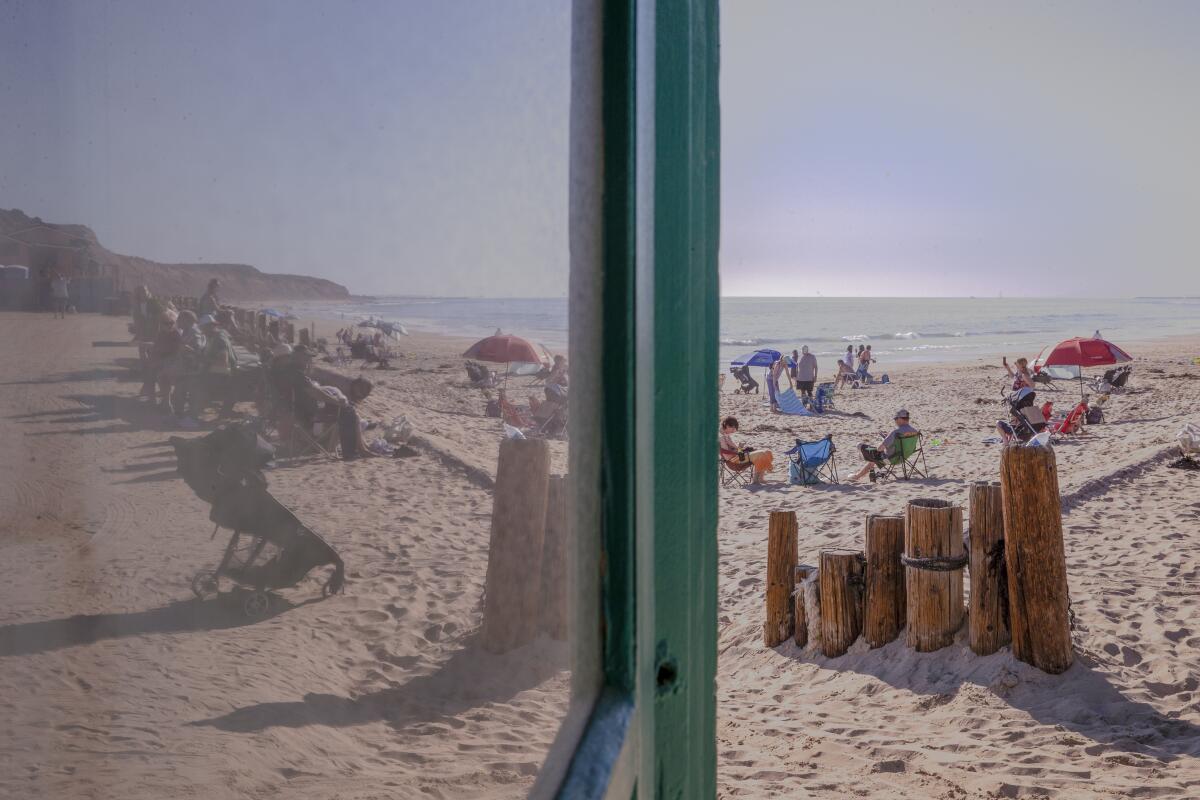
Subscriber Exclusive Alert
If you're an L.A. Times subscriber, you can sign up to get alerts about early or entirely exclusive content.
You may occasionally receive promotional content from the Los Angeles Times.